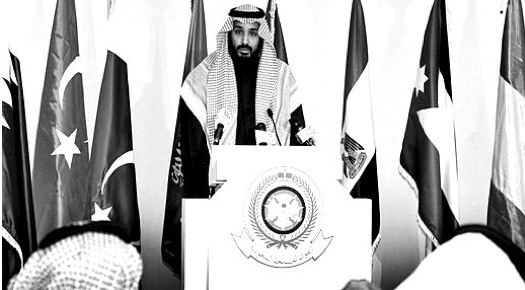
Saudi Arabia recently announced the formation of an Islamic military coalition to counter terrorism.
“The countries here mentioned have decided on the formation of a military alliance led by Saudi Arabia to fight terrorism, with a joint operations centre based in Riyadh to coordinate and support military operations,” read a statement that was released on December 15, 2015.
The long list includes 34 countries, including Arab nations such as Qatar, Egypt and United Arab Emirates, Islamic nations such as Malaysia, Turkey and Pakistan as well as some other nations in Africa.
The statement cited “a duty to protect the Islamic nation from the evils of all terrorist groups and organizations whatever their sect and name which wreak death and corruption on earth and aim to terrorize the innocent.”
Shiite Muslim nation Iran, which happens to be Sunni nation Saudi Arabia’s archrival in influencing the Arab world, was left out of the list of states named as participants, as proxy conflicts between both regional powers continue to reign from Yemen to Syria. The United States has been increasingly vocal about its view that Gulf Arab countries should do a lot more to assist the global military campaign against Islamic State, which is based across Iraq and Syria.
In an unusual press meet, 30-year-old defense minister as well as deputy crown prince Mohammed bin Salman, said that the campaign would aim at coordinating efforts in order to combat terrorism in countries such as Iraq, Syria, Egypt, Libya and Afghanistan. However, he refrained from offering concrete indications with regards to how these military efforts would be conducted.
“There will be international coordination with major powers and international organizations … in terms of operations in Syria and Iraq. We can’t undertake these operations without coordinating with legitimacy in this place and the international community,” bin Salman said.
When asked whether the new alliance would focus solely on the atrocities being carried out by Islamic State, bin Salman said the alliance would confront not only that militant group but every other terrorist organization that wages war against humanity.
Saudi Arabia’s foreign minister Adel al-Jubeir elucidated that the new alliance would combat terrorism by sharing information and training, equipping as well as providing forces if necessary.
“Nothing is off the table,” al-Jubeir said when asked whether the initiative could include troops on the ground. “It depends on the requests that come, it depends on the need and it depends on the willingness of countries to provide the support necessary.”
United States Defense Secretary Ash Carter welcomed the announcement.
“We look forward to learning more about what Saudi Arabia has in mind in terms of this coalition,” he told reporters. “But in general it appears it is very much in line with something we've been urging for quite some time, which is greater involvement in the campaign to combat Islamic State by Sunni Arab countries.”
Saudi Arabia and its Gulf neighbours have been caught up in ten months of warfare with rebels that have allied with Iran and continue to launch hundreds of airstrikes in the region. Following a surge of attacks on Western targets claimed by Islamic State in recent months, the Unites States has stressed that the firepower would be better utilized against the militant group.
Political agenda aside, Saudi Arabia plans on fighting Islamic State on theological grounds as well, as it seeks to obliterate the militant group’s perverted interpretation of Islam by launching its own range of counter radicalism programs and relentlessly clarifying growing myths about Islam across social media. With anti-Muslim sentiments spreading across Europe and the United States ever since the horrifying terror attacks took place in Paris and San Bernardino late last year, and Islamic State propagating a false narrative that the West and Islam are incompatible; Saudi Arabia happens to be exclusively positioned to win the war for hearts and minds of Muslims across the Arab world, African nations and Asia as well. By choosing to lead this coalition, Saudi Arabia is making evident that it would not accept religious extremists compromising the standing of all Muslims around the world and their apparent quest to undermine tolerance and coexistence.
Islamic State has sworn to overthrow the monarchies of Gulf Arab, already having orchestrated a series of attacks on Shiite mosques and security forces in Saudi Arabia and Kuwait.
The announcement of the newly formed anti-terror alliance was made on the same day as the United Nations confirmed that peace talks between Yemen’s warring factions would take place in Geneva, Switzerland.
Photo Credits: New York Times
